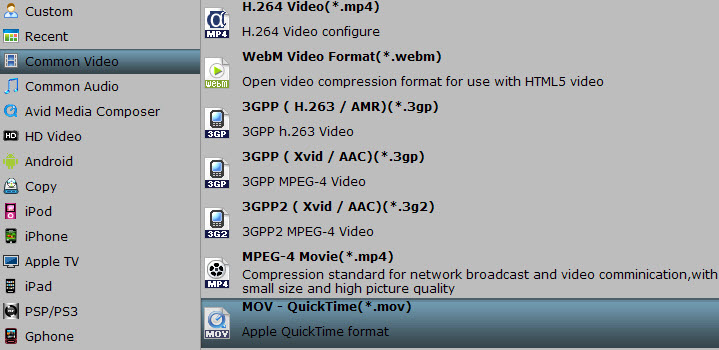 |
|
 |
| |
| Author |
Message |
Vincent121
Age: 37
Joined: 12 Aug 2012
Posts: 149
Location: usa


|
|
Importing and Interpreting Canon C300 .MXF to After Effects CS6/CS5.5/CS5/CS4
"I'm having trouble getting footage form a Canon C300 to play correctly in AE CS6. It was shot at 1080i/25. The footage jitters on pans as if it were shot at 24p and there is a lot of moiré on diagonal edges of objects."
"Need help. I shot a project with the Canon C300 in 24p mode. I uploaded the files on my hard drive, but when I drag a clip to After Effects CS4 the audio is out of sync with the footage. Please help is there any way to fix?"
Does the Adobe After Effects CS6/CS5.5/CS5/CS4 support Canon MXF footage?
Much to the disappointment of filmmakers that are not familiar with the .mxf format, the footage created with Canon C300 could neither be imported to Final Cut Pro, nor the latest Adobe Premiere Pro/ After Effect CS6. If you're stuck with editing Canon C300 footage After Effects CS4/CS5/CS6, the professional and powerful MXF to After Effects Converter for Mac may help. The solution is simple - just convert Canon C300 .mxf to .avi or .mov or other formats that After Effect can handle well. Below is a quick guide of converting C300 .mxf to .mov for editing in AE CS6/CS5.5/CS5/CS4.
Before processing:
1. Back up/Transfer the C300 footage to Mac computer - copy the whole XF video folder to your computer hard drive, not just the individual .mxf files.
2. Install Pavtube MXF Converter for Mac ($29). Click here to download a free trial for test.
Step-by-step Guide: Convert Canon C300 .mxf to AE CS6/CS5.5/CS5/CS4 supported format with best possible quality
Note: this is a Mac oriented solution. For Windows users the Pavtube Studio offers alternative MXF Converter for PC, which is very similar to the Mac MXF Converter.
Step 1. Launch the Mac MXF to After Effect Converter. Click "Add Video" and browse to a Canon .mxf clip and the software will add it to file list. Repeat the operation to load multiple mxf videos. Or you may click the "Add Folder" button to import all the .mxf files in the XF file structure.
Step 2. Click on "Format" and choose "Common Video > MOV – QuickTime (*.mov)" format as the best codec for editing Canon C300 MXF in Adobe After Effect CS6/CS5.5/CS5/CS4.

Tip: QuickTime MOV format is recommended simply because it also work with Final Cut Pro, iTunes, QuickTime Player and iOS devices (iPad/iPhone). You may also use AVI, MP4, MPG, TS or any other format that AE supports.
Step 3. Click on "Settings" to redefine output quality. You can also set a different video resolution (1920x1080/1440x1080/1280x720/720x480), frame rate (24p/30p), bitrate, audio channels, etc. For users who would like to retain exactly the same settings (without any quality loss), set target settings the same to source video.
Step 4. Click "Convert" to start transcode Canon C300 MXF to MOV for After Effect CS4/CS5/CS6 editing on Mac.
After conversion click "Open" to find .mov videos and import converted .mov files to Adobe After Effect CS6/CS5.5/CS5/CS4 for editing.
This Mac MXF Converter also includes Apple ProRes 422 codec for filmmakers to convert C300 MXF to FCP and Avid DNxHD MOV codec for encoding MXF to Avid Media Composer. Priced at $29, it is a good buy.
For those who also edit videos from AVCHD cams and various other sources, I recommend the iMedia Converter (20% Off from Oct. 26 to Nov. 6), which converts not only MXF, but also clips frames from DVDs and even Blu-ray Disc movies.
Another Worth-buying Special Offer from Pavtube Halloween Sale is 50% OFF DVD Creator for Mac, which is a decent alternative to iDVD.
|
|
|
|
|
|
   |
    |
 |
|
|
|
View next topic
View previous topic
You cannot post new topics in this forum
You cannot reply to topics in this forum
You cannot edit your posts in this forum
You cannot delete your posts in this forum
You cannot vote in polls in this forum
You cannot attach files in this forum
You cannot download files in this forum
|
|
|
|
 |
|
 |
|